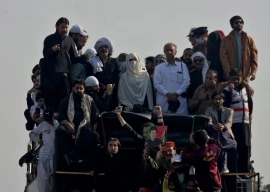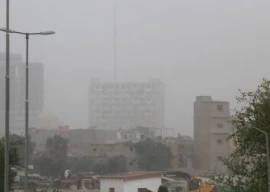A consultative seminar was held on the impact of climate change on markets on Monday by the Sustainable Development Policy Institute.
The event, “Climate risks and its impacts on Markets and Growth: The Case of Pakistan,” was organised to share reports on climate risks and markets and identify multiple vulnerabilities, according to a press release.
Researchers highlighted linkages between climate change with risk, the tragedy of global commons and the urgent need for climate resilient infrastructures. They recommended improvements in the adaptive capacity of institutions, as climate change has adverse effects on all sectors, specifically energy and agriculture. Industries associated with cotton which is the main cash crop in the country are among the most affected.
The participants called for extending social protection to help people associated with vulnerable sectors of the economy transition towards more eco-friendly activities. Pakistan ranks as the eighth most vulnerable country in the world in relation to climate change.
Dr Usman Mustafa, an agricultural economist said third world countries suffer the most due to heavy reliance on agriculture, which is 100 per cent weather-dependent. Climate change alters biodiversity that threatens our food security. Coherence between long-term and short-term goals, and long-term coping mechanisms, including the need to change consumption patterns is essential to mitigate the impact of climate change.
Javed Ali Khan, former director general of Environment and Climate Change, stressed the need to communicate with people at the grass-roots level to fully understand the effects of climate change, which has depleted market potentials.
Agricultural research institutions are working on water-resistant and drought-resistant seeds, which have the capacity to cope with adverse climate effects, he said. “Climate change affects every ecosystem differently so there can be no blueprint approach and an intensive study is necessary to document its impact.” A study of projections till the end of the 21sth century shows a positive effect in northern Pakistan with longer summers, he added.
Published in The Express Tribune, July 22nd, 2014.

















COMMENTS
Comments are moderated and generally will be posted if they are on-topic and not abusive.
For more information, please see our Comments FAQ